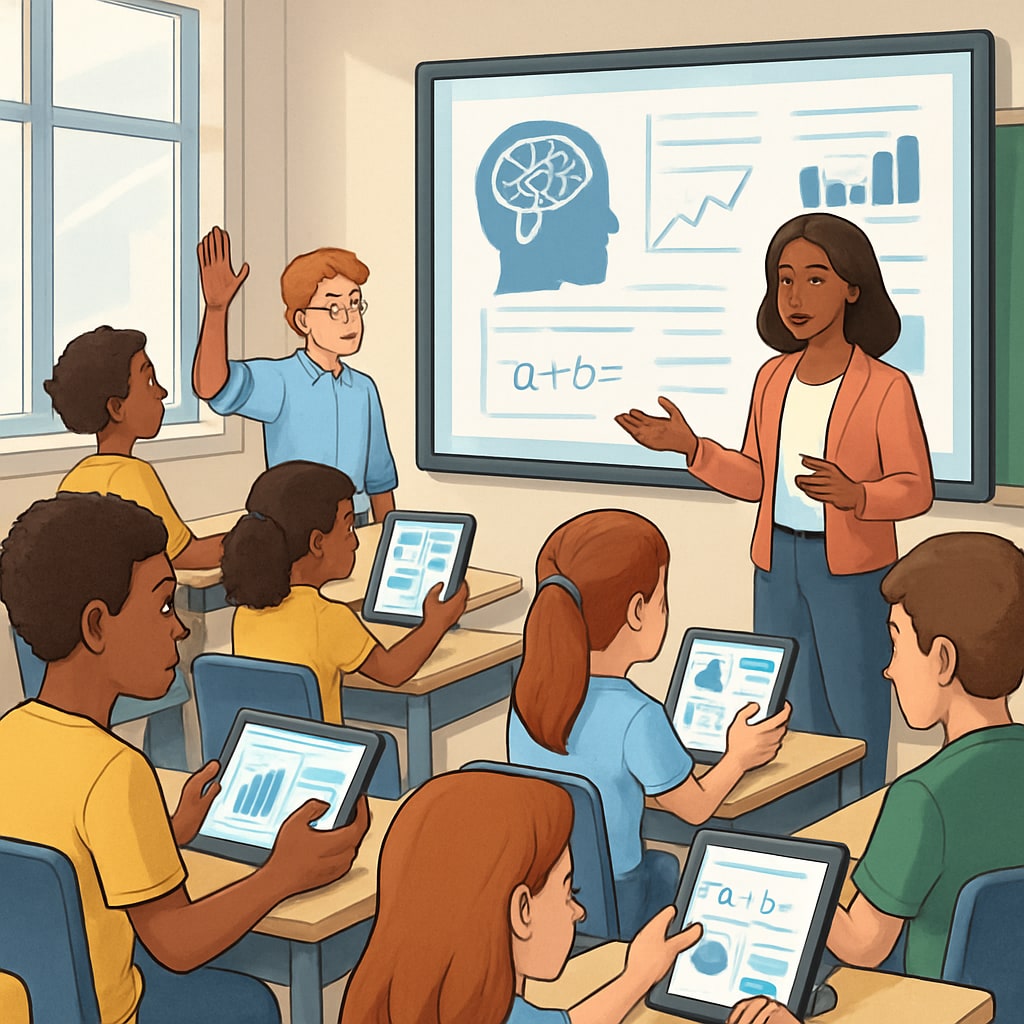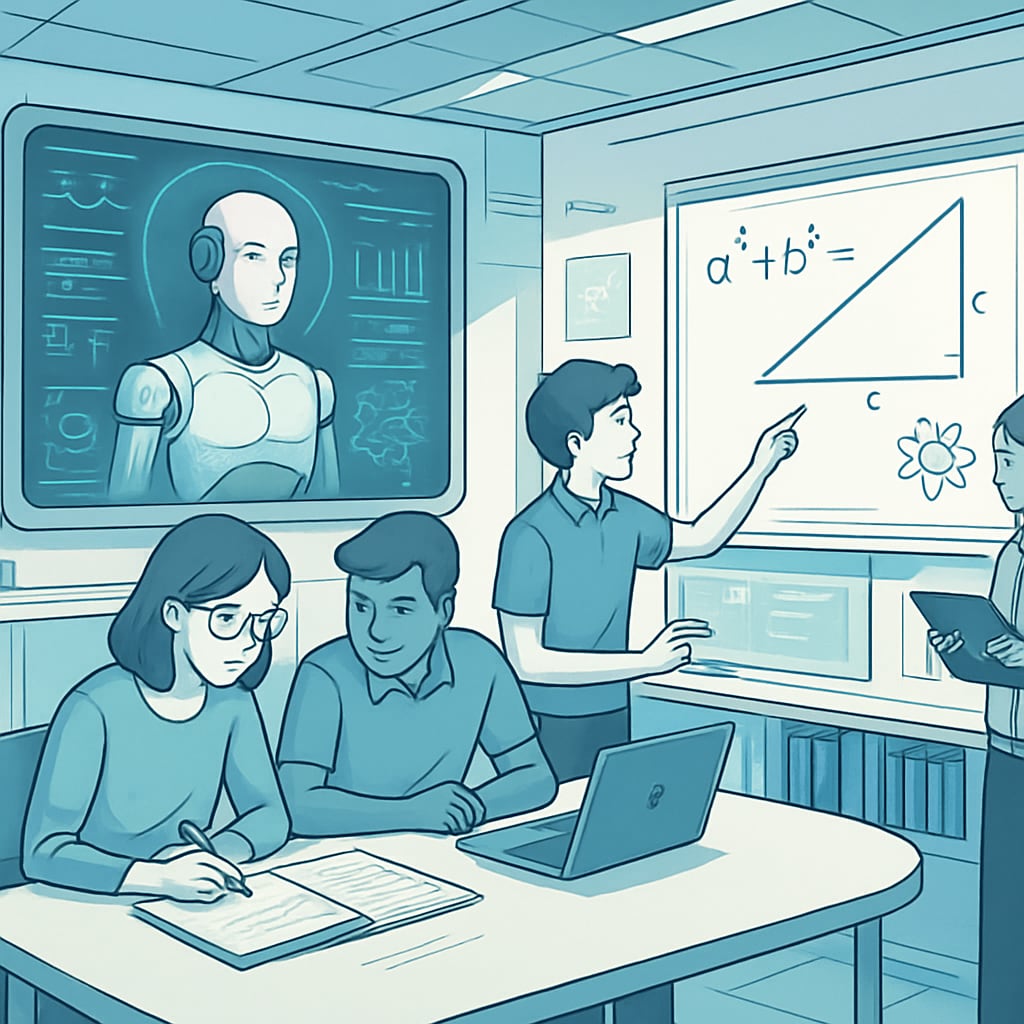In an era dominated by artificial intelligence (AI), traditional competitive exams and talent selection processes are under scrutiny. The rapid advancements in AI challenge the relevance of standardized testing, which has long been a cornerstone of educational systems. As the world shifts towards innovation-driven societies, it is imperative to reimagine how K12 education evaluates and nurtures talent.
The Limitations of Traditional Competitive Exams
For decades, competitive exams have been used to gauge students’ knowledge, critical thinking, and problem-solving skills. However, these tests often prioritize rote memorization over creativity and innovation. With AI systems now capable of solving complex problems, answering questions, and even generating essays, the traditional exam model appears increasingly outdated.
Moreover, standardized exams tend to measure a narrow set of skills, ignoring attributes like emotional intelligence, adaptability, and collaboration—qualities that are becoming essential in a world shaped by AI. As a result, students often leave school unprepared for the challenges of the future workforce.

AI’s Role in Transforming Educational Assessments
Artificial intelligence offers unparalleled opportunities to revolutionize K12 assessments. AI-driven platforms can provide personalized evaluations, tracking a student’s progress over time and offering insights into their unique strengths and weaknesses. This dynamic approach goes beyond static test scores, focusing on holistic development.
For example, adaptive learning systems can tailor questions to a student’s current level of understanding, ensuring that assessments are both challenging and fair. Additionally, AI can facilitate project-based evaluations, where students are assessed on their ability to apply knowledge in real-world scenarios rather than just their ability to recall facts.
These changes not only make assessments more relevant but also encourage students to develop the creativity, critical thinking, and problem-solving skills that are critical in an AI-driven world.

Reforming Exams to Foster Future-Ready Talent
To prepare students for a future defined by AI, education systems must move away from high-stakes, one-size-fits-all exams. Instead, they should adopt diverse evaluation methods that align with the skills required in tomorrow’s workplace.
- Competency-Based Assessments: Focus on mastering specific skills rather than achieving arbitrary test scores.
- Collaborative Projects: Encourage teamwork, creativity, and application of knowledge to solve real-world problems.
- Portfolio Evaluations: Allow students to showcase a collection of work that demonstrates their growth and abilities over time.
- AI-Enhanced Feedback: Provide immediate, actionable insights to help students improve continuously.
By implementing these reforms, K12 education can better align with the demands of an AI-powered society, ensuring that students are equipped to thrive in an ever-changing world.
Challenges and Ethical Considerations
While the integration of AI into educational assessments offers numerous benefits, it is not without challenges. Issues such as data privacy, algorithmic bias, and equitable access to technology must be addressed to ensure that AI-driven systems are fair and inclusive.
For instance, algorithms trained on biased data can perpetuate inequalities, disadvantaging certain groups of students. Furthermore, reliance on AI should not overshadow the importance of human judgment and teacher involvement in the evaluation process. Striking a balance between technology and human input is crucial for creating effective and ethical assessment systems.
Conclusion: Embracing Change for a Better Future
The era of artificial intelligence demands a reimagining of how we assess and cultivate talent in K12 education. By moving beyond traditional competitive exams and embracing innovative, AI-driven evaluation methods, we can nurture future-ready students equipped with the skills to excel in a rapidly evolving world.
Reforming the educational assessment system is not just an option; it is a necessity to ensure that the next generation can thrive in the age of AI.
Readability guidance: This article uses concise paragraphs, lists, and clear transitions to enhance readability. It balances technical insights with accessible language to engage a broad audience.


